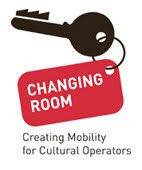
At the occasion of the 2010 European Year for Combating Poverty and Social Exclusion the European Festivals Association (EFA) launches its 2010 flagship project “Open The Door” (www.Open-The-Door.eu). As in previous European Years, EFA has been awarded official partner of the European Union. “Open The Door” invites festivals to invest into and reflect upon the transforming power of arts and culture in our societies today. The initiative was launched on 12 February 2010 in Stockholm in collaboration with 13 national festivals associations and 4 cultural networks. They bring together more than 1000 festivals from all over Europe.
www.Open-The-Door.eu is yet another important contribution of the European Festivals Association to engage festivals in a joint commitment of raising awareness for societal issues at stake in Europe and beyond. Under the motto “Festivals: Open Doors. Open Minds. Build Societies!” EFA showcases examples that demonstrate the privileged position of festivals to provide the means for everyone to experience culture.
“Festivals open doors to new artistic forms, new performers, new audiences, unusual venues, unknown cultures, new points of view, new approaches to arts and the world, new social orders, new political discussions. This year, we would like to show how festivals open minds and help building societies,” underlines EFA Secretary General Kathrin Deventer during the launch of the initiative in Stockholm.
Throughout the year, different activities are planned: The 2010 EFA General Assembly and Conference in Merano/Italy (8-11 April 2010) is to open doors for new artists and new audiences; a reception celebrating the election of Croatian President and Director of Music Biennale Zagreb (member of EFA) in Zagreb in June is to open the door to joined cultural activities between the EU accession country and EU countries; a first joint meeting between EFA and AAPAF, the Asian Association of Performing Arts Festivals, envisioned in September is to open doors to collaboration between European and Asian festivals, amongst others. Furthermore, commitment can be expressed on the project website – www.Open-The-Door.eu – at any time.
Following the Arts Festivals’ Declaration on Intercultural Dialogue, the FestLab for Creativity and Innovation as well as the launch of the European House for Culture, EFA and its members continue to play a key role as powerful messengers for a cultural Europe!





